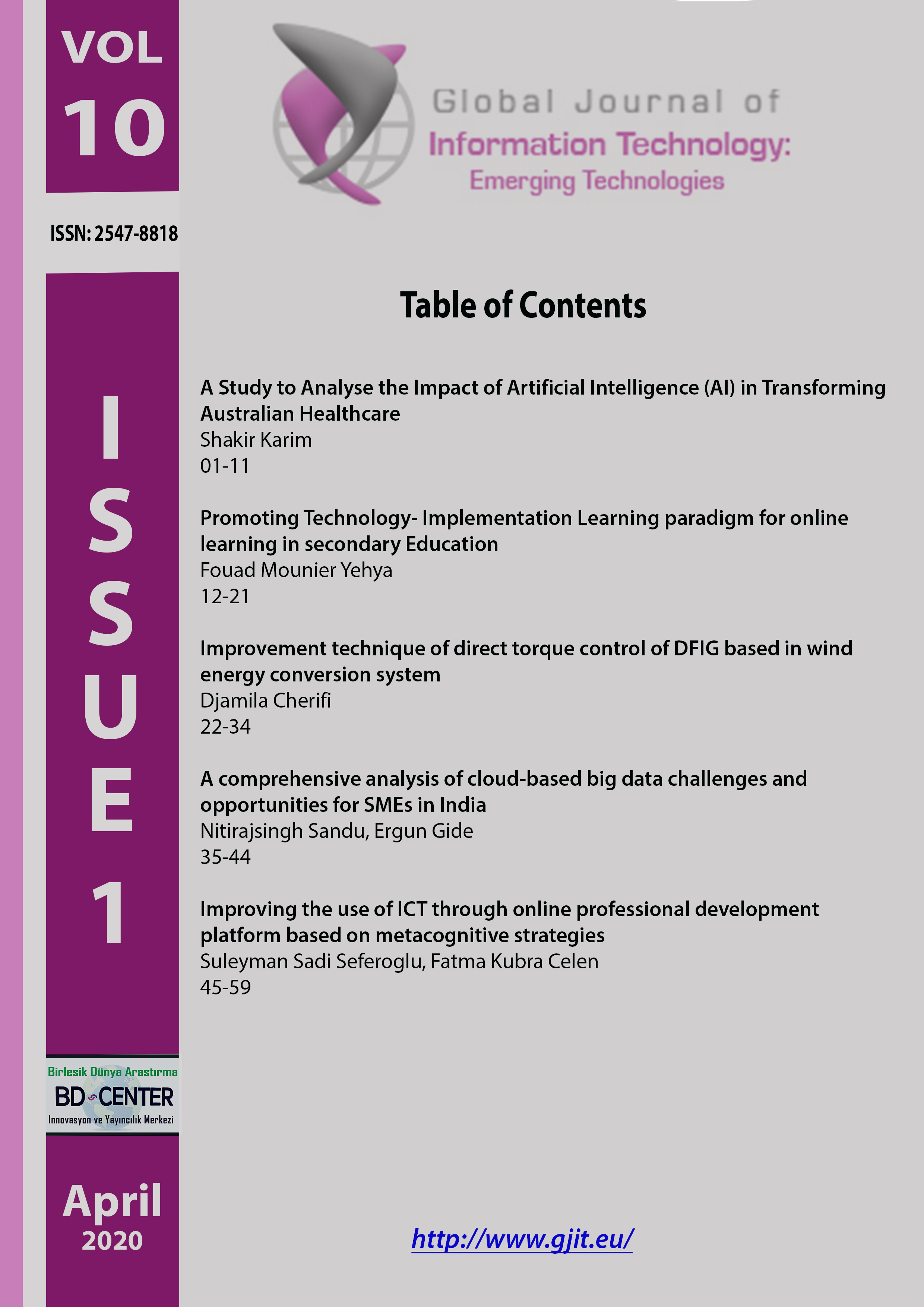Promoting Technology- Implementation Learning paradigm for online learning in secondary Education
Main Article Content
Abstract
Online learning via educational technology tools has been used as a paradigm shift in education to transmit knowledge and promote learners’ engagement in secondary learning environments. The emotional, behavioural and cognitive facets of engagement play an important role in the learning process and social development. Learner engagement refers to the degree of attention, focus, belief, interest and emotions that motivate learners successfully to practice higher level critical thinking skills and to promote meaningful learning experiences to achieve the course’s learning objectives and progress in their education. This study adopted the instructional design theory, which aimed to propose a clear technology implementation model to enhance learners’ engagement in online learning. Some popular technology implementation learning models were explored and analysed. Later, the technology implementation learning paradigm was proposed for the purpose of promoting learners’ engagement in online learning and support the meaningful inclusion of online learning in secondary schools. The proposed paradigm is composed of four interacted fundamental dimensions, attitude dimension, pedagogical dimension, social dimension and technical dimension, which lead to engage learners emotionally, behaviourally and cognitively in a technology-supported learning environment. Attitude dimension is the intentions and the perspectives to understand, interact and manage emotional skills and abilities needed by technology users for the effective usage of educational technology tools. Pedagogical dimension is the active learning process for cognitive development using predefined learning objectives and pedagogical theories to identify learning strategies and assessments to achieve planned educational outcomes. Technical dimension intends to create a computer and media literacy that allows learners and instructors to employ online learning without technical difficulties. Social dimension is to create a technological cooperation where learners are networking with other learners and are willing to share positively their experiences with peers and/or with teachers to attain their emotional, social and cognitive engagements that keep them motivated and even inspired.
Keywords: Artificial APTS paradigm, educational technology, learners’ engagement, online learning.
Downloads
Article Details

This work is licensed under a Creative Commons Attribution 4.0 International License.
Authors who publish with this journal agree to the following terms:- Authors retain copyright and grant the journal right of first publication with the work simultaneously licensed under a Creative Commons Attribution License that allows others to share the work with an acknowledgement of the work's authorship and initial publication in this journal.
- Authors are able to enter into separate, additional contractual arrangements for the non-exclusive distribution of the journal's published version of the work (e.g., post it to an institutional repository or publish it in a book), with an acknowledgement of its initial publication in this journal.
- Authors are permitted and encouraged to post their work online (e.g., in institutional repositories or on their website) prior to and during the submission process, as it can lead to productive exchanges, as well as earlier and greater citation of published work (See The Effect of Open Access).
